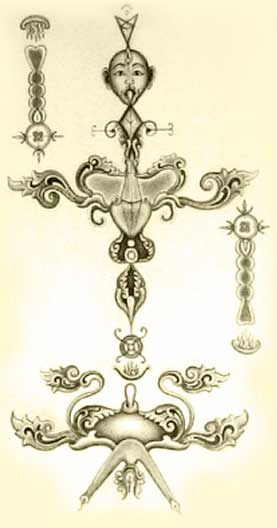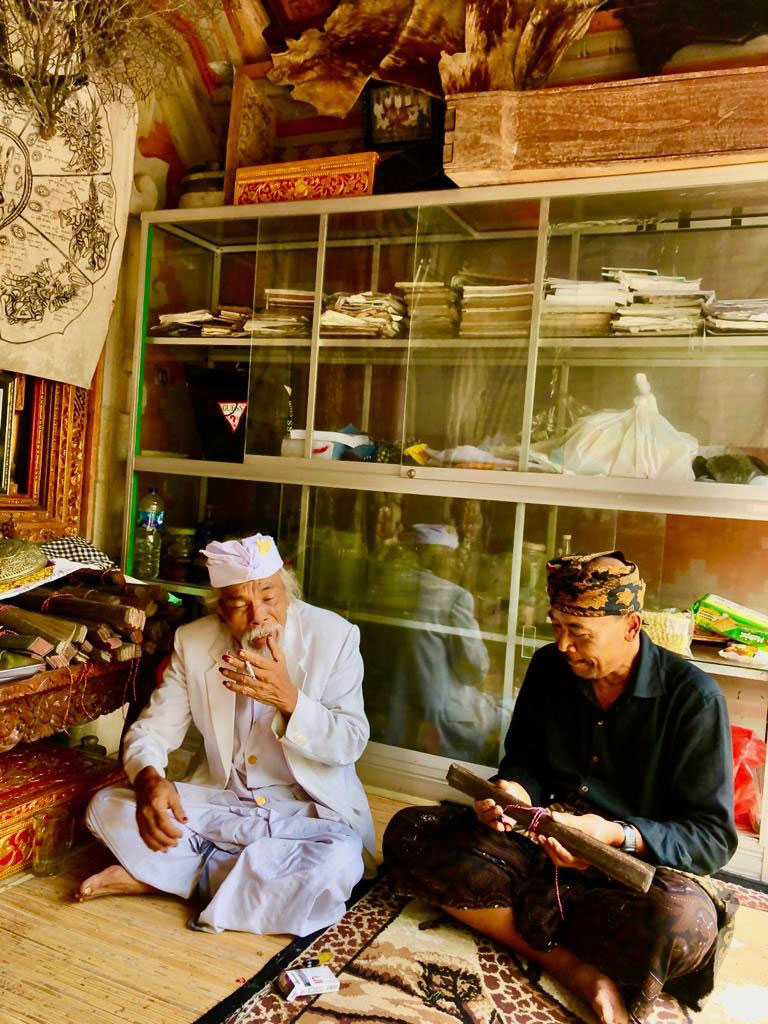Bali is famous for its skilled and charismatic healers, known as balian. The ancient healing tradition has now become commercialized. Visiting a healers has become an item on the tourist circuit and a lucrative industry for some practitioners. But visitors should be aware that not all so-called healers are authentic, and there are important protocols to observe when visiting one.
Authentic balians practice only from their home compounds . They do to advertise, have websites or draw attention to themselves. Many do not speak English or have any desire to work with foreigners. Therefore its not easy for visitors to find or communicate with them.
As a scholar specializing in Balinese balians and co-author of a book about traditional healing practices in Bali, I have spent many years identifying and learning about the specialities of the islands most powerful healers. There are at least 4 different types of balians, each taking a specific role in the mystical realm. I have observed many healings that cannot be explained by medical science.
Visiting a real balian is not a casual underrating or a single quick-fix session. Its important to understand and respect the protocols around the visit.
My role is to help visitors identify the appropriate balloon for theirneeds, offer cultural background, accompany the visitor, translate during the session and provide the appropriate offering to the balian.
I also give lectures to individuals and groups on Bali’s healing traditions and guide small groups to visit carefully selected balians.
I am not a Balian Referral Service who willl tell you who you should see in Bali. I do not take people to future tellers or palm readers as this is not healing, and it is not part of our tradition.
Balian Etiquette
- Balians receive their healing gifts from the spirit, as well as through study based on Bali Hindu philosophy. They credit this spirit with giving them their gift of healing. Others become balians through a very long and intensive study and initiation from a well-known healer or high priest or priestess. They are the Balinese equivalent of a “doctor,” who has to follow an etiquette and moral code, not so different from a modern Western doctor.
- Healers are not regarded as celebrities so don’t treat them like one.
- There are so many types of healers who work on specific problems, from broken bones to broken hearts, mental disorders to “mysterious” problems, so choose one that is appropriate for you.
- Expect that it will be a process, and expect to receive several treatments at least and that you might have to change Balians if one does not work. It is not an instantaneous process, so don’t expect to be healed on your way to the airport.
- Typically, Balinese bring an offering to a healer, with a donation of appreciation inside. At the conclusion of the day, the healer dedicates this offering to their spirit in the family temple. Be generous.
- Balians are regarded a status similar to priest. Consequently, if you visit one, you should show respect by dressing in a sarong and temple scarf.
- Remember always to give your offering with your right hand, and never point the bottom of your feet at Fe.the healer. Never ever touch their head or face, which is the most sacred part of the body.
- Be skeptical of anyone who claims to practice a western healing tradition (reiki,feldenkrais, reflexology, tarot, etc.) or Asian (such as acupuncture).
What I Can Offer: I can organize and lead a private tour for you or you and your group, I can lecture to your organization on numerous topics. I can take you on spiritual journeys in Bali, and if you have a problem, whether mental, physical or spiritual, I can make an appointment with the appropriate healer, be there with you to translate as most healers do not speak English.
For rates and contact information consult



